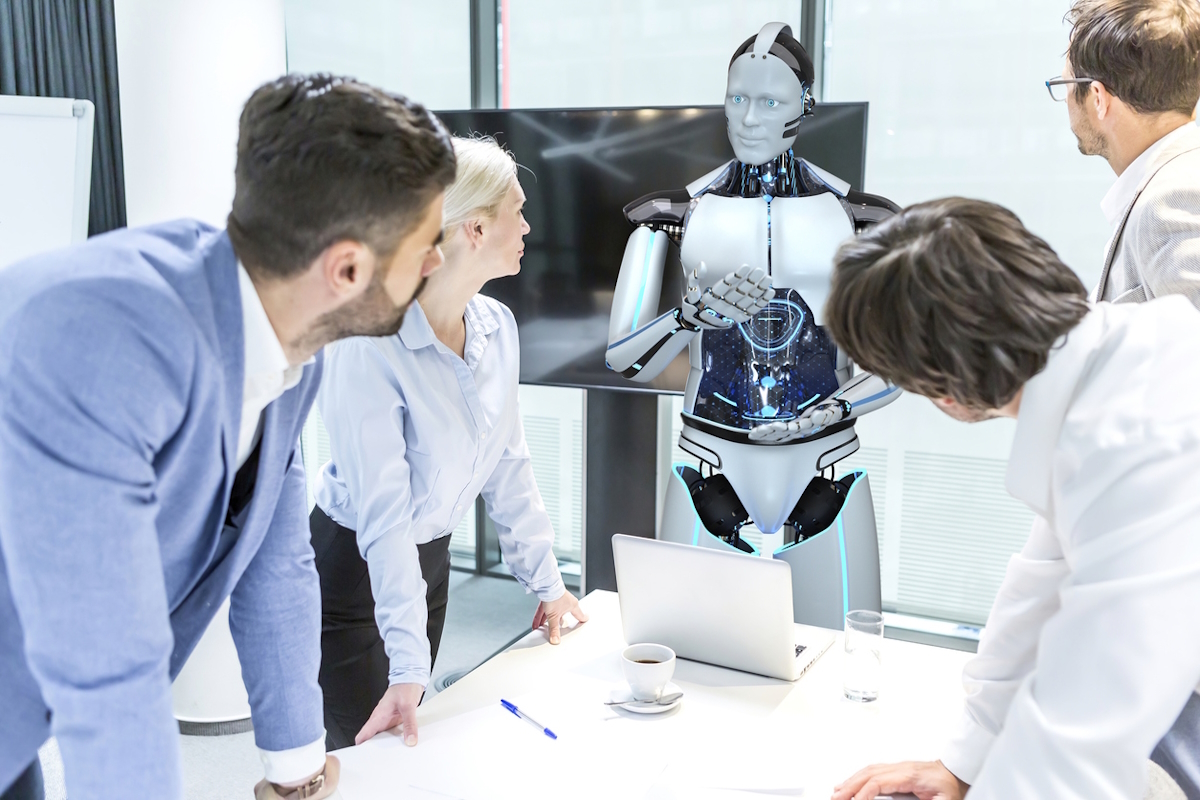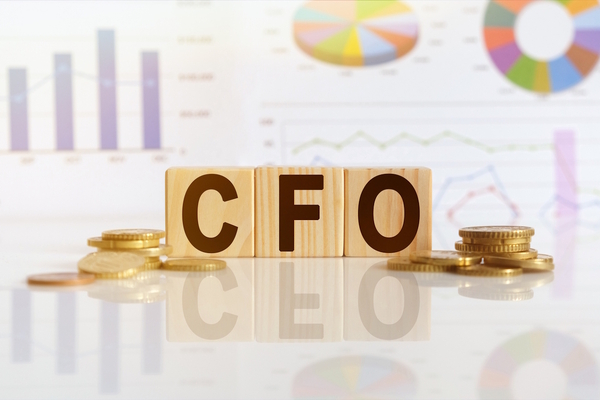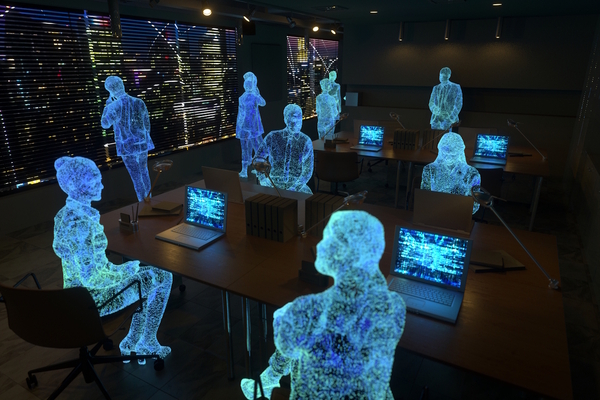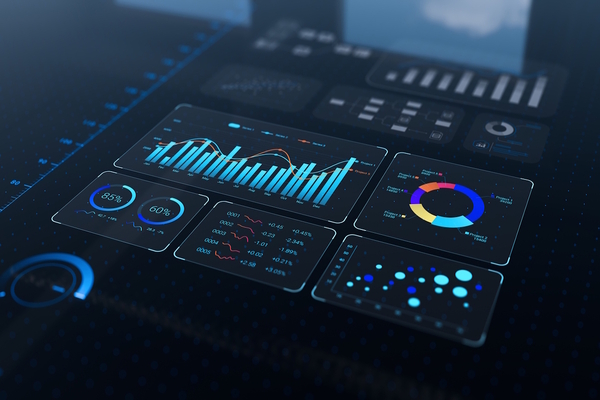How AI is changing the role of the CEO

Faisal Husain at Synechron describes the benefits that AI can bring to leadership roles but argues that it will never replace human capabilities
Since the release of Open AI’s ChatGPT, the interest in artificial intelligence (AI) and, specifically, generative AI (GenAI), has been overwhelming. With GenAI capabilities continuing to grow, augmenting human capabilities and providing real-world solutions for business, the potential for enhanced efficiencies in this area is huge.
But, with the progression of this new technology, roles will change – and at all levels. So, how will AI change the role of CEO?
High-level executive summaries
Institutions and executives are already using GPT models to analyse official statements and speeches produced by central banks. This high-level insight is invaluable to CEOs and executives.
In a paper entitled Can ChatGPT Decipher Fedspeak? by Anne Lundgaard Hansen and Sophia Kazinnik, researchers evaluating the ability of GPT models to classify Federal Open Market Committee announcements as either ‘dovish’ or ‘hawkish’, found these AI algorithms were superior to other methods and demonstrated reasoning abilities on a par with humans. This ensures CEOs and decision-makers are considerably better briefed to make sound business decisions.
Reducing uncertainty and predicting growth
We are getting to a point where AI can help CEOs make predictions that increase profit and growth. AI-powered tools can assist CEOs in strategic planning and forecasting by analysing vast amounts of data to identify patterns, anticipate market shifts and simulate various business scenarios.
AI reduces the cost and uncertainty of decision-making, enabling new business models and strategies, and improving operational efficiency and customer satisfaction. This enables CEOs to develop more agile, adaptive and future-proof business strategies.
High-level AI analysis for competitive advantage
AI analysis is now increasingly being used in business to support high-level decision-making. Recently, we have seen an example of this insight being employed in elite-level sport – Manchester United are deploying AI in a bid to get ahead of their Premier League rivals.
United partnered with Manchester Metropolitan University’s Institute of Sport to ‘drive elite performance’ across the club and gain a ‘competitive advantage on the field’. This partnership will give United access to the institute’s research and innovation studies through a series of PhD programmes that include using AI to develop analysis techniques and metrics not yet available to other top-flight clubs.
This is not just sport – it’s hard to pinpoint an industry where benefits are not being felt. CEOs and decision-makers looking to stay ahead of the game are increasingly restructuring their organisations to embrace this type of insight and stay ahead of the competition.
Time for an AI CEO?
A lot of the recent noise around AI has been about how this emerging piece of tech might eventually replace lower-ranked workers. But should the highest-ranked corporate executives also be worried?
In 2017, Jack Ma, CEO of Alibaba, predicted that "in 30 years, a robot will likely be on the cover of Time Magazine as the best CEO." While that sounded farfetched, last year a video game company made a bot the CEO, and its stock climbed. Chinese gaming company, NetDragon Websoft, announced that "AI-powered virtual humanoid robot" Tang Yu, as chief executive of its subsidiary, Fujian NetDragon Websoft. This new chief executive was responsible for all the usual CEO duties: reviewing top-level analytics, assessing risk, making leadership decisions and enabling workplace efficiency. Since Yu’s appointment, the company has outperformed Hong Kong’s stock market.
CEO: more than just a faceless decision-maker
To what extent this technology will restructure the workplace, including the roles of top-level executives?
CEOs and executives represent more than just day-to-day expertise – they are front and centre, as the physical embodiment of their company. The Hustle quotes Marguerita Lane, a labour economist with OECD, saying “My gut feeling is that CEO will be the very last job to be automated.” This is probably true because most parts of a CEO’s role demonstrably cannot be taken on by AI – human areas, like being a figurehead for accountability, selling a vision, communicating with the public and negotiating with other executives.
Human decision-making is all about context and real-life experience – and this is something AI cannot replicate.
Working at the intersection of human and AI creativity
McKinsey estimates that around 25% of a CEO’s time is spent on tasks that machines or AI could take on —reviewing financial performance, sending high-level emails and forecasting trends. By assisting with these tasks, more time can be invested by CEOs on the business of communicating and explaining what their companies offer their clients and customers. Here is where AI is truly helping CEOs and executives.
AI may one day be seen as a CEO’s “deputy” and leaders must be ready to deal with consequential issues. Employees must be trained with skills to adopt this technology effectively, balancing an AI-powered workforce must be approached with caution and both regulatory and security risks must be addressed with precision. Business leaders must adapt to AI-driven disruption in their industries, anticipate new competitive forces, and identify opportunities for leveraging AI to drive innovation and growth.
When looking at innovative approaches used by the best tech companies over the past 20 years, a common characteristic is their focus on disruptive innovation. These firms have often challenged established norms and disrupted traditional industries by introducing revolutionary products, services, or business models – like artificial intelligence.
It’s important that this culture of disruption continues in technology – and industry leaders can lead the way here – by adopting AI as an insightful partner and embracing all it has to offer.
Faisal Husain is CEO of Synechron
Main image courtesy of iStockPhoto.com and style-photography

Business Reporter Team
Most Viewed
Winston House, 3rd Floor, Units 306-309, 2-4 Dollis Park, London, N3 1HF
23-29 Hendon Lane, London, N3 1RT
020 8349 4363
© 2025, Lyonsdown Limited. Business Reporter® is a registered trademark of Lyonsdown Ltd. VAT registration number: 830519543





